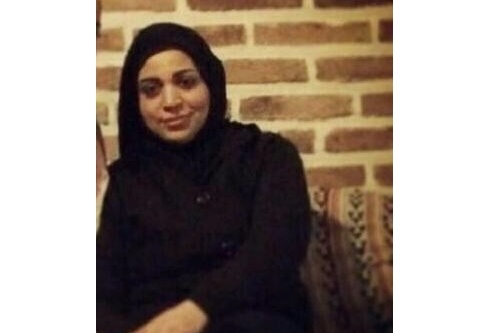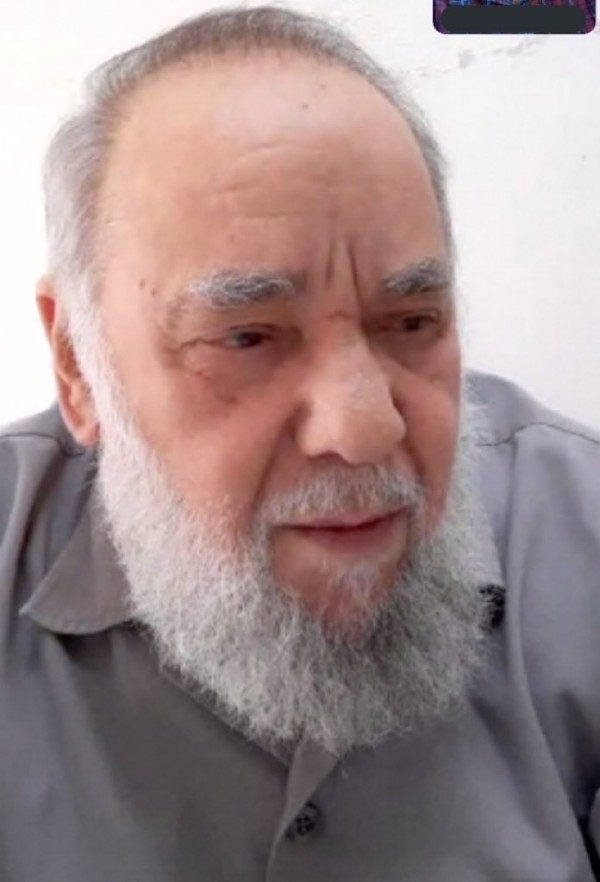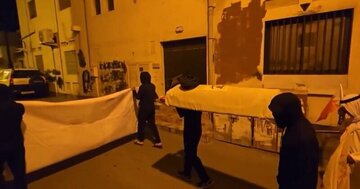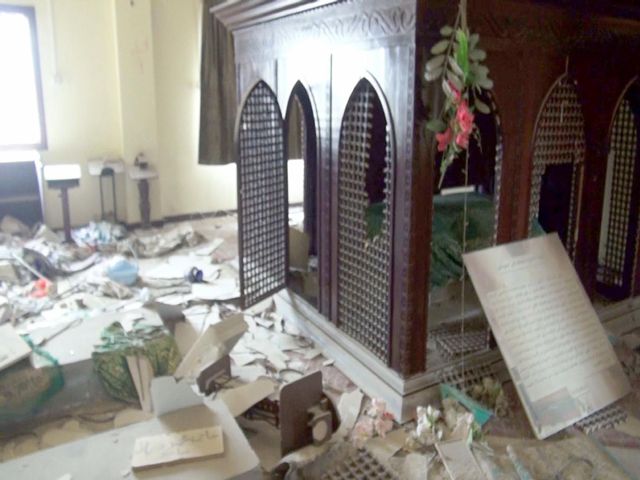Bahrain Centre for Human Rights expresses its concern as the Bahraini government continues to exploit the law and its own authority to sanction opposition activists, including women. The government is using the law to put pressure on women and on society as a whole, and to take revenge against those who persist in calling for their internationally-recognised right to self-determination. Security services arrested Ayat al-Safar, 32, on alleged charges that she provided shelter for wanted suspects, against a background of politically-motivated charges.
Ayat al-Safar, the mother of two daughters, handed herself in to the Criminal Investigations Directorate on 30 September 2014, after her home was raided on several occasions. Safar had been called urgently to attend an investigation on 14 September 2014 - despite the fact that she had not responded to the invitation, her husband was called in the next day. He signed a document pledging that Ayat would hand herself in for investigation. According to her family’s testimony, al-Safar is facing a false charge, namely that she hid individuals wanted by the security services, by sheltering them in a flat in Sitra Wadyan. Civil forces, accompanied by police officers, raided a residential block in Sitra on Monday 15 September 2014, arresting two men and attacking one of them, Wahib al-Diri, using unreasonable force.
al-Diri, who the Interior Ministry claims was sheltered by al-Safar, was subjected to inhumane treatment during his arrest; he suffered an injury to his leg, and his family was forbidden from comforting him when they attended the hospital where he was being treated. Moreover, he was subject to forced disappearance for 54 hours before being transferred to Jaw Central Prison, to server 2 years imprisonment sentence for arson. The fourth criminal court sentenced al-Diri to six years in prison and a fine of 1000 Bahraini dinars on 29 December 2014, on charges of unlawful assembly and rioting in the Dair region.
al-Safar informed her family during their first visit to her that she had been subjected to psychological torture and degrading treatment at the Criminal Investigations Headquarters, where the Bahrain Centre for Human Rights has previously documented cases of torture and inhumane treatment. Ayat was presented before the third criminal court, which ruled that her court date be postponed until 19 January 2015. al-Safar is now the fourth female detainee in Bahrain’s prison system, along with Rayhana al-Musawi, Nafisa al-Asfur and Zahra al-Sheikh, to be arrested and judged on the basis of malicious charges leveled with the intention preventing them from participating in alongside men in marching to call for greater rights. These are not the first such cases; BCHR has documented the arrest of more than 300 female citizens, including doctors, academics, teachers, activists, poets, nurses and university and school students, as well as women from other sectors of society. BCHR considers the continuation of this tactic of arresting women and leveling malicious charges against them represents a systematic policy to take revenge against activists of all kinds, including women. BCHR considers Bahrain’s judicial system a tool of the government[3], used to punish activists and people demanding their rights.
Based on the above, BCHR calls on the United States, the United Kingdom, the United Nations and all other international relevant organizations, as well as human rights groups, to put pressure on the Bahraini government to do the following:
- Immediately and unconditionally release Ayat al-Safar and other detained female activists.
- Put an immediate stop to the practice of using torture as a method of obtaining confessions, and offer guarantees of the safety and security of detainees.
- Question and bring to justice all those involved in torture, including those in high positions who ordered and supervised instances of torture.





